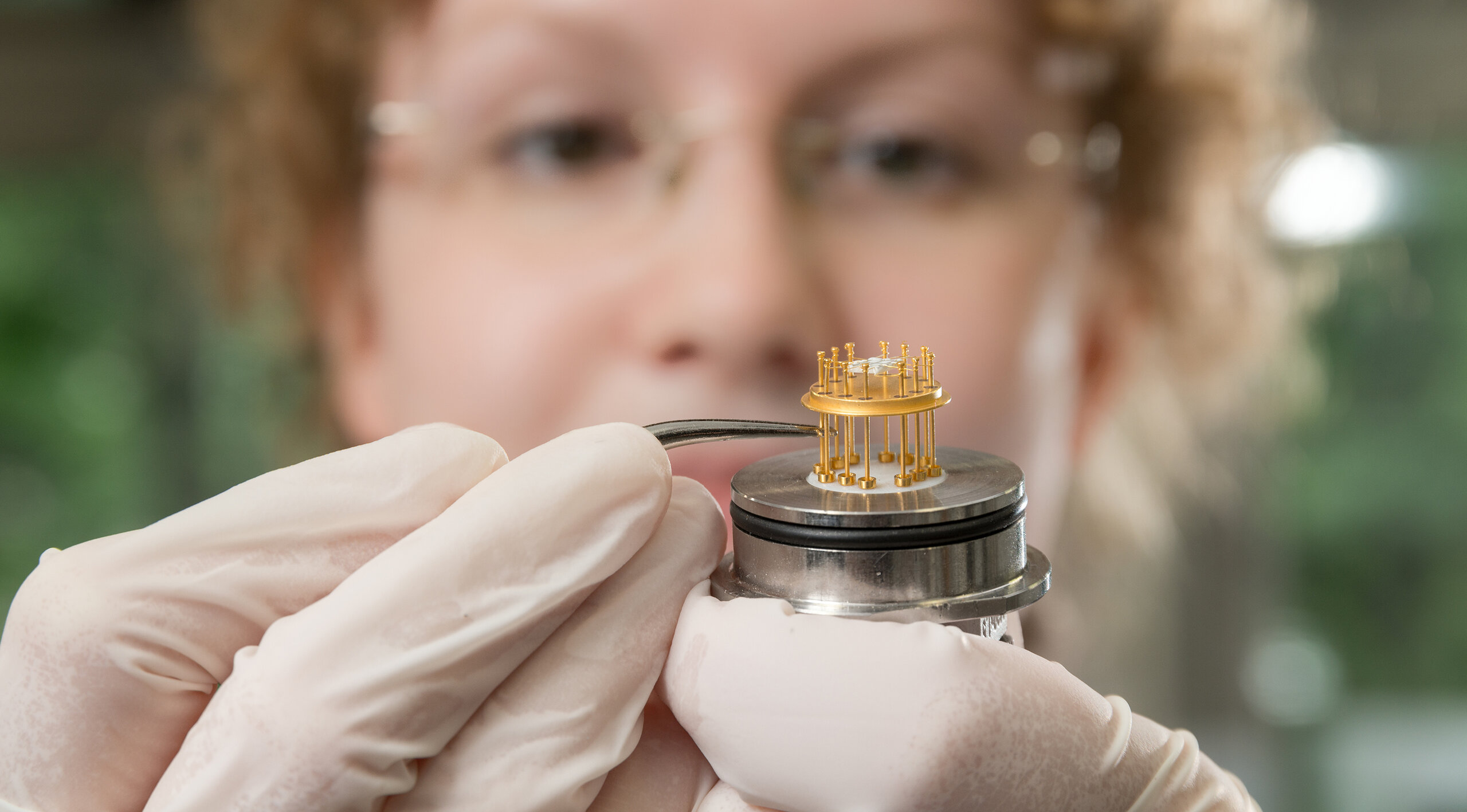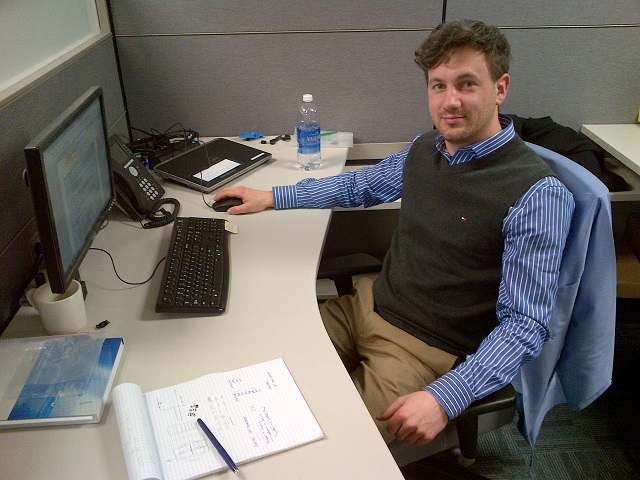
Sensor Systems Technology
Sensor Systems Technology
Sensor systems in everyday life
In modern society, it is impossible to imagine everyday life without sensor systems. More and more areas of our lives are equipped with sensor systems. We find them in building, traffic and industrial automation, medical technology, logistics, but also in safety and environmental technology.
Trends in research
In this master's program, you will have the opportunity to learn about new developments and trends in applied research in Sensor Systems Technology and to work on current projects even as a student. Today, complex systems evaluate diverse sensors, summarize their data, process them and make them available to the user. The breadth and variety of possible applications is very large and increasing all the time.
At a glance
| Degree | Master of Science (M. Sc.) |
| Start Of Study | Summer semester |
| ECTS Credits | 120 in total |
| Standard Period Of Study | 4 semesters |
| Admission prerequisites | Pre-study work experience is not required |
| Accreditation | Yes (certificate) |
Contact
Office
Kirbie Whitten-Reiners
Phone: +49 (0)721 925-1302
Fax: +49 (0)721 925-1301
kirbie.whitten-reiners@h-ka.de
Office hours:
Mon. - Thur. 9:30 a.m. - 12 p.m.
Building N, room 109
Moltkestraße 30
76133 Karlsruhe
External content
To use this content (Source: www.xyz.de), please click to Accept. We would like to point out that by accepting this iframes data to third parties transmitted or cookies could be stored.
You can find further information in our Privacy policy.
External content
To use this content (Source: www.xyz.de), please click to Accept. We would like to point out that by accepting this iframes data to third parties transmitted or cookies could be stored.
You can find further information in our Privacy policy.
External content
To use this content (Source: www.xyz.de), please click to Accept. We would like to point out that by accepting this iframes data to third parties transmitted or cookies could be stored.
You can find further information in our Privacy policy.
A graduate reports
Patrick Erlewein: After completing my vocational training as an industrial electronics technician, I decided to study. I was sure that I wanted to continue working in the field of electronics, but at te same time I did not want to neglect my great interest in science, especially physics. The Sensor Technology degree program appealed to me directly because it combined engineering and natural sciences. Since the program turned out to be attractive and exciting, I decided to follow up with a Master's degree in Sensor Systems Technology after completing my bachelor's degree.

How to apply
Your application will be evaluated by an admission committee. They will look at your marks in profile subjects as: physics, chemistry, electronics, computer science, mathematics, control engineering, microprocessors and some sensorics related subject. They also will look at any information like GRE results, cv details, projects, recommendations, ...
This will result in a ranking number for admission. The highest numbers (above a minimum threshold) will be accepted. The course should have 25 students each year.
There are fees for all non-EU citizens according to state law of the state of Baden-Württemberg. This is valid for all universities in this state. EU citizens have no fees. The fees are 1500 Euro per semester.
Application and Registration
Please register and apply via the online platform and upload the application documents. Paper version may be submitted later.
For a successful application submission you need:
- CV (curriculum vitae)
- Bachelor‘s certificate (may be submitted later)
- Transcript of records (necessary immediately, all universities you studied at)
- English language certificate (TOEFL 550 (paper-based), 213 (computer-based), 83 (internet-based), or equivalent. Proof of an English taught Bachelor's is not sufficient.
- Secondary school certificates
- Copy of passport
- We strongly recommend to send GRE test and, for students from India, additional GATE test, if available
- Optionally, you can submit: statement of purpose, recommendation letter(s) by your professors/employers.
We cannot send back application papers, so please do not send original documents. Once you get admission, you have to show the original papers.
In case of problems or further questions please contact → Mrs Silke Neureuther or the → head of the programme by email.
Important steps
Here you can find further important information on preparing for and starting your studies in Kalrsruhe:
www.h-ka.de/en/information-for-international-students
Additional Service
Possibility of finding part-time employment
International students who come from outside the EU or the EEA are allowed to work outside of the university for 120 full or 240 half days per year. Therefore, students may work full-time during the lecture-free period or part-time during the semester. As the Karlsruhe region has a very low unemployment rate, chances of finding student jobs are generally quite good. Read more
Accommodation
In Karlsruhe, dormitory places are scarce. We therefore recommend that you look for accommodation as early as possible. There are basically two possibilities: You can apply for a room in a dormitory or look for private accommodation. Here you can find more information and links to the search for accommodation.
Organizations & Recreational Activities
On this page you will find information about organizations and possible activities in Karlsruhe that are especially interesting for international students: www.h-ka.de/en/study/student-life/tips-for-international-students
Specific specialist or non-specialist support for international students and doctoral candidates
- Welcome event
- Buddy program